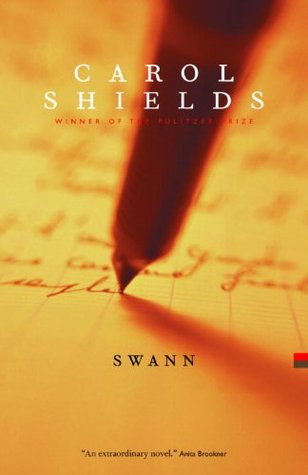More on this book
Kindle Notes & Highlights
The fact that art could be created in such a void was, for some reason, deeply disturbing.
Clever men create themselves, but clever women, it seems to me, are created by their mothers. Women can never quite escape their mothers’ cosmic pull, not their lip-biting expectations or their faulty love. We want to please our mothers, emulate them, disgrace them, oblige them, outrage them, and bury ourselves in the mysteries and consolations of their presence.
Within minutes, we’re peddling away, the two of us, a genetic sewing machine that runs on limitless love. It’s my belief that between mothers and daughters there is a kind of blood-hyphen that is, finally, indissoluble.
The connective twine between us is taut with details. I have all her little judgements filed away, word perfect. There’s scarcely a thought in my head, in fact, that isn’t amplified or underlined by some comment of my mother’s. This reinforces one of my life theories: that women carry with them the full freight of their mothers’ words. It’s the one part of us that can never be erased or revised.
Mary’s poems are filled with concealed references to her mother and to the strength and violence of family bonds.
the work often possesses a greater degree of dignity than the hand that made it.”
the life is more than gossip and disclosure. It is what the work feeds on. One’s own experience, before it is tainted by art.”
“The highest work, the most original work, comes, I believe, out of an innocent, ignorant groping in the dark.”
Poetry was the prism that refracted all of life. It was Jimroy’s belief that the best and worst of human experiences were frozen inside these wondrous little toys called poems.
the gap between the private and public person.
True, it will never be perfect. There are gaps, as in every life, accidents of silence and misinterpretation and the frantic scrollwork of artifice, but also a seductive randomness that confers truth.
“This is the central mystery of the poets, Miss Hindmarch. We examine the roots of our poets, their sources, the experiences they draw upon, and it never adds up.
Scenery gliding past the eye doesn’t need worrying about. It passes, that’s all, quick as a wink, and asks nothing in return.
A pound of joy weighs more When grief had gone before
In literature she sniffs a kind of godly oxygen that binds one human being to the next and shortens the distance we must travel to discover that our most private perceptions are universally felt.
Human society, he says to Cruzzi in his soft burr, is distinguished by four manifestations: the existence of tools, the presence of art, a respect for the dead, and a compulsion to give names to natural phenomena.
My books, dear Book Browser, are a comfort, a presence, a diary of my life. What more can I say?
I have found that it is sometimes better to look at the universe with a squint, to subject oneself to a deliberate distortion, and hope that out of the ‘jumbled vision, or jumbled notes if you like, will fall the accident that is the truth.
The poems in Swann’s Songs were passed over by most reviewers as simple, workmanlike curiosities,
You can’t tell from the outside what a person’s really like, even when a person knows a person real well.
It is a mystery, just as our own lives are mysteries. Just as we don’t ever really know that person sitting to our right or left.
regarding Swann as a kind of curious cultural hiccup isolated from any sort of cultural tradition.
like other self-generated artists, Mary Swann had the ability to state her truths with a sharpness and slant that lit up what had become stale by traditional use. It’s this, more than anything else that gives her work its power.
Even those at the fringe of the, shall we say, prevailing communal structure, are open to general patterns of cultural thought
LOST THINGS By Mary Swann It sometimes happens when looking for Lost objects, a book, a picture or A coin or spoon, That something falls across the mind— Not quite a shadow but what a shadow would be In a place that lacked light. As though the lost things have withdrawn Into themselves, books returned To paper or wood or thought, Coins and spoons to simple ores, Lustreless and without history, Waiting out of sight And becoming part of a larger loss Without a name Or definition or form Not unlike what touches us In moments of shame.


